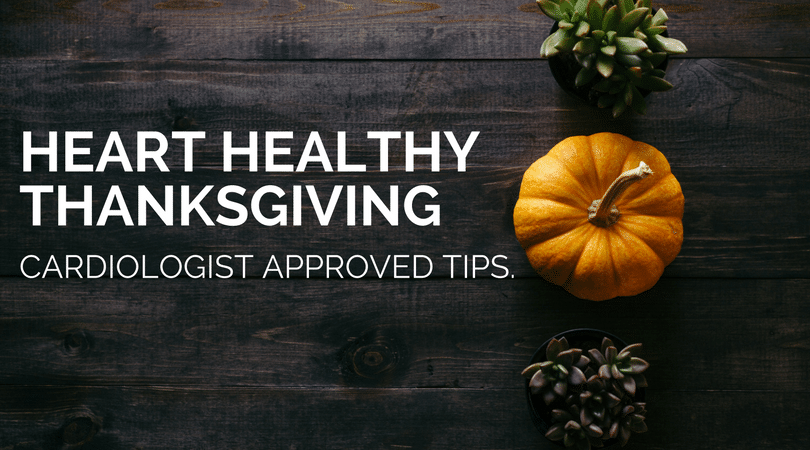Whether you’re recovering from a heart attack, trying to lower your cholesterol, or simply trying to prevent heart disease, there are a few tricks you can use for a heart-healthy Thanksgiving. Many people find themselves enjoying multiple celebratory meals and a whole lot of leftovers which means Thanksgiving really spans a few days rather than 1 dinner. If you’re trying to put your heart first or following cardiologist prescribed eating plans, you can still enjoy one of the best meals of the year without doing damage. Here are a few cardiologist approved ways to make Thanksgiving healthier.
Turkey: To Fry Or Not To Fry?
Deep frying a turkey is a tradition carried on by lots of American families. However, the density of peanut oil or other frying oils takes a toll on your arteries. Try swapping the fryer for the oven. Or, invest in an infrared fryer that will give you the same great taste without any oil.
Butter: It’s In Everything
From the stuffing to the mashed potatoes and pie crust, the level of saturated fat in 1 Thanksgiving meal can fill your weekly allotment. Small amounts of olive oil or some nonfat plain Greek yogurt can give your dishes great flavor without filling your veins with junk. Choose one dish to use the butter on and other than that, skip it.
Alcohol: Binge Drinking On The Holidays
For many families, there is an abundance of wine, beer, and cider at Thanksgiving get togethers. If you’re recovering from a heart episode or dealing with chronic heart disease, alcohol + the stress of a family get together can have harsh effects on your blood pressure. Try to limit alcohol consumption to no more than 2 drinks. Dry red wine is lower in sugar content and is a safer option than beer or other heavier drinks.
Other Cardiologist Approved Thanksgiving Ideas:
- Be active! Get your family out for a game of flag football or a long walk. This can help you counteract the high-calorie count and sedentary day.
- Bring dishes for yourself. If someone else is hosting, it might be uncomfortable to tell them what they can and cannot use. Instead, bring a few side dishes to share that are tasty and within your diet needs.
- Skip the salt. By not adding salt to your dishes, you can have a positive impact on your cardiovascular health. Try using other spices or rich vegetable stock to season dishes.
- If you’re not sure about how to put your health first, contact your cardiologist via the patient portal for clarification.





